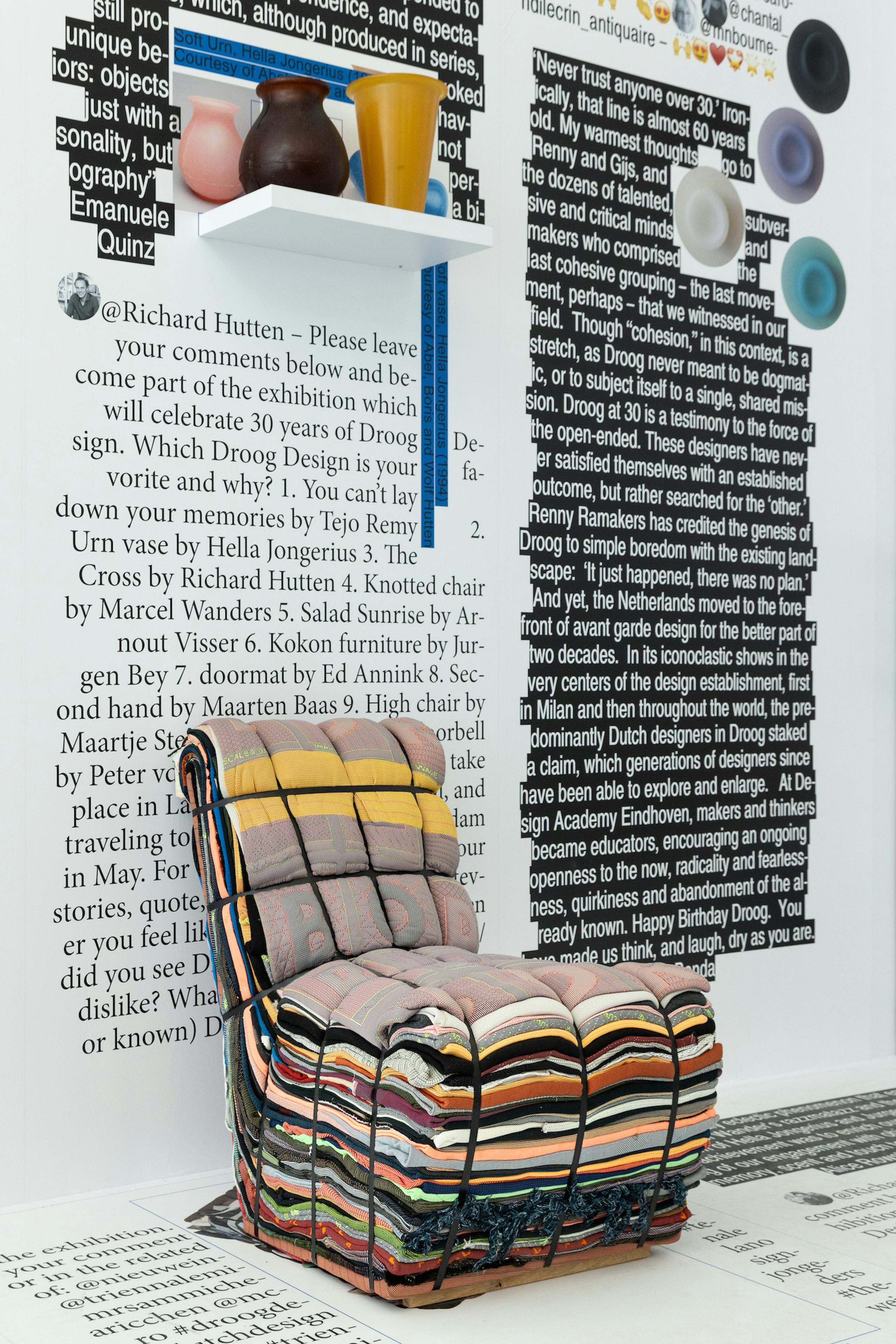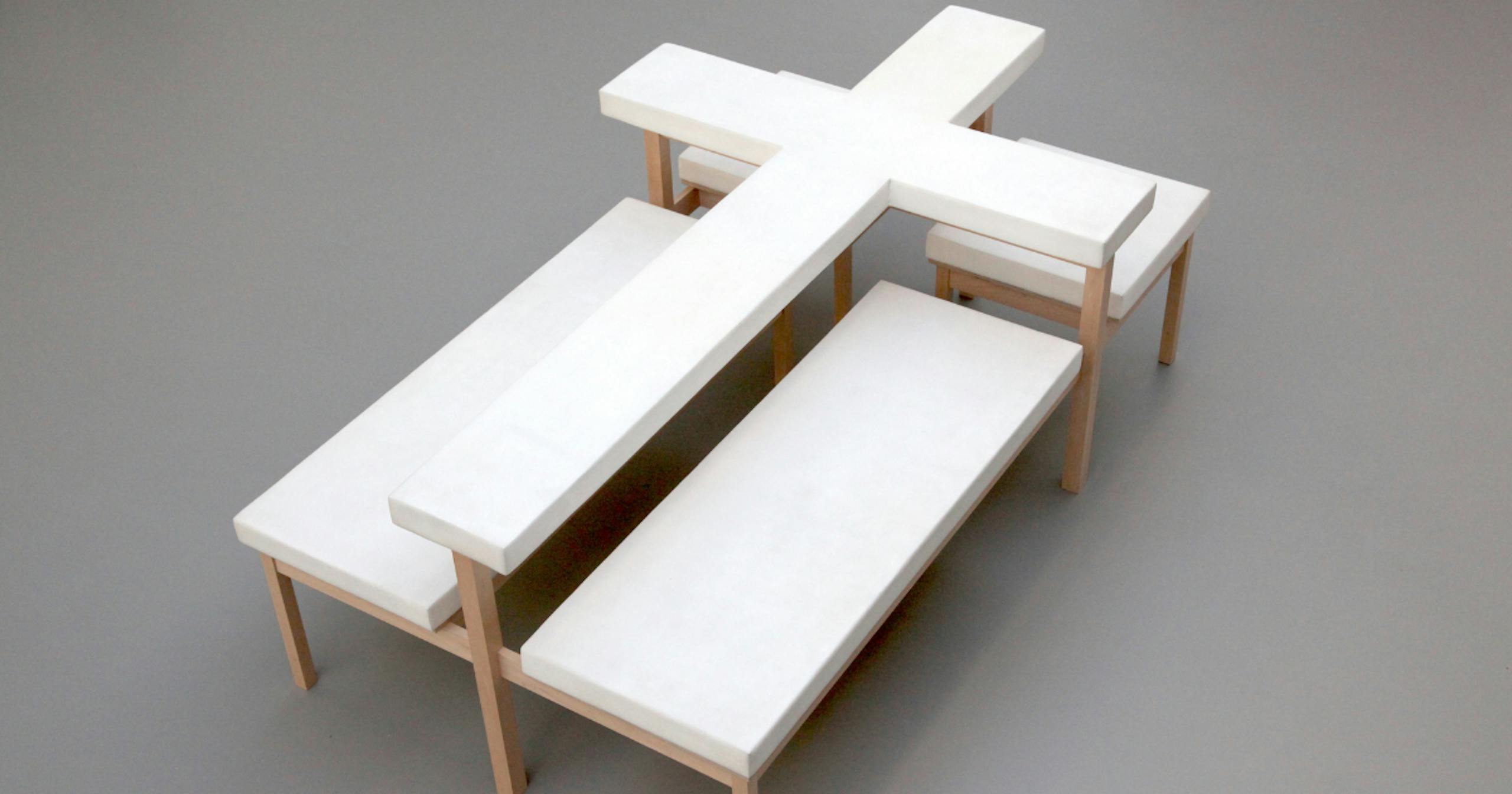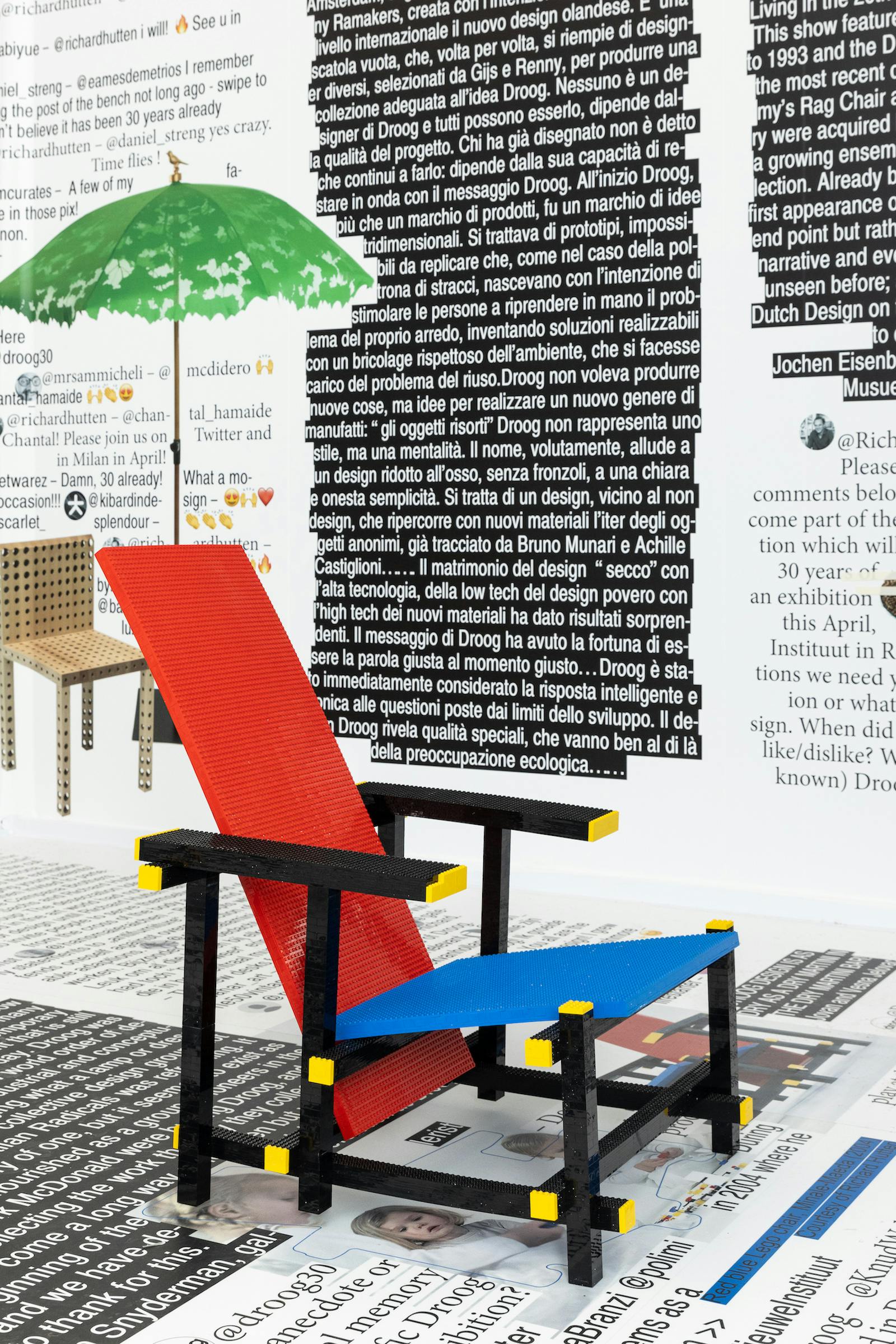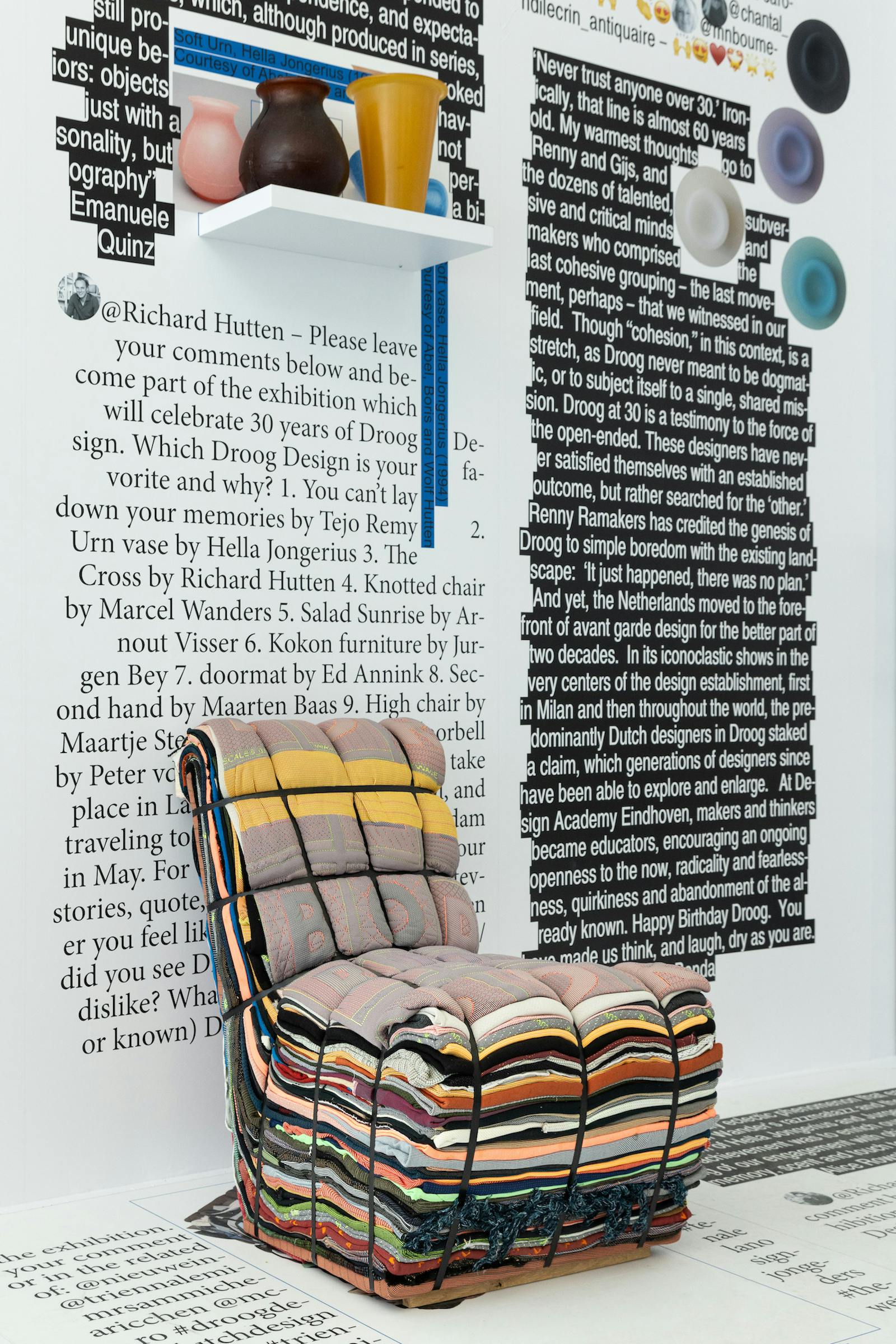

Richard Hutten, The cross
Droog30. Design or Non-design?
The exhibition celebrates the brand’s irreverent and rebellious 30 years of career, while illustrating its contemporary and newfound mainstream component. Since its debut in Milan in 1993, Droog has established itself as something other, rough with fascinating storytelling. Rebelling against the idea of form and function, it gave life to a new aesthetic, approach, and language, articulating the thoughts of an audience and industry that were bored with refinement and decoration.
An immersive and welcoming display, it showcases how the brand’s impertinent thinking and pioneering disobedience from traditional design has become during the years—to say, extremely appealing and a real milestone of the international history of design. From Tejo Remi’s Chest of Drawers, designed in 1991, elevating found drawers into what could be perceived as an art object, to Marijn van der Poll’s Do Hit Chair, which as in a performance, is shaped by its owner with a hammer making the object unique and also very much yours; from the embracing and artisanal-looking Knotted chair by Marcel Wanders, designed in 1996, to the more recent objects such as the 2013 Glass Lantern by Richard Hutten, who modernised and reshaped a typical Chinese paper lantern, Droog aims at making the ordinary extraordinary.
Droog started in 1993 when art historian Renny Ramakers and designer Gijs Bakker presented a collection of works from a group of young Dutch designers at the Salone del Mobile in Milan under the name "Droog’" Ramakers and Bakker had noticed a fresh trend in design in the use of everyday, recycled materials, combined with a down-to-earth mentality. The designs where simple yet humoristic—literally "dry"; "Droog" in Dutch.
Credits
In collaboration with: Nieuwe Instituut, Rotterdam
Curated by: Maria Cristina Didero and Richard Hutten
Highlights

Photo Gianluca Di Ioia

Photo Gianluca Di Ioia

Photo Gianluca Di Ioia
Related events

Archives and collection
Explore hundreds contents →



